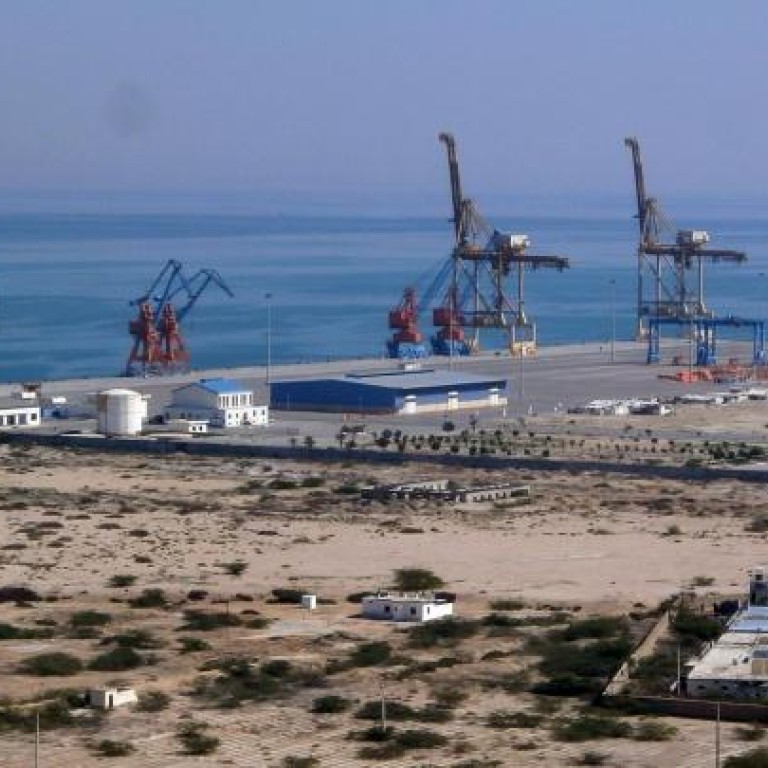
Pakistani port Gwadar aids China's maritime expansion plans
Control of sea lanes at Gwadar provide Beijing with a gateway for oil and a possible naval base
China's acquisition of a strategic port in Pakistan is the latest addition in its drive to secure energy and maritime routes and gives it a potential naval base in the Arabian Sea, unsettling India.
The Pakistani cabinet on January 30 approved the transfer of Gwadar port, a commercial failure cut off from the national road network, from Singapore's PSA International to state-owned China Overseas Port Holdings.
The Pakistanis pitched the deal as an energy and trade corridor that would connect China to the Arabian Sea and Strait of Hormuz - a gateway for a third of the world's traded oil - overland, through an expanded Karakoram highway that would cut the distance imports would have to travel. Thousands of kilometres would be slashed off the journey from Africa and the Middle East, making Gwadar a potentially vital link in China's oil and gas supply chain.
China paid about 75 per cent of the initial US$250 million used to build the port, but in 2007 PSA International won a 40-year lease, with then-ruler Pervez Musharraf reportedly unwilling to upset Washington by giving it to the Chinese.
Although it may take up to a year for the deal to be signed, Gwadar would be the most westerly in a string of Chinese-funded ports encircling its big regional rival, India, which was quick to express concern over the impending transfer.
In Nepal, China is building a US$14 million "dry port" at Larcha, near the Tibet border, along with five other ports and is upgrading transport links with an eye on the huge Indian market.
In Bangladesh, China is one of four countries - the others being India, Japan and the United States - interested in building a US$5 billion deep-sea port on Sonadia island, in the Bay of Bengal.
Pakistan is probably the only government where the level of trust between the two militaries is high enough to make that a completely reliable prospect
Sri Lanka in June 2012 opened a new US$450 million deep-sea port at Hambantota, close to the vital east-west sea route used by around 300 ships a day, built with Chinese loans and construction expertise.
Beijing is also a key backer of a port and energy pipeline in Myanmar that will transport gas pumped offshore and oil shipped from Africa and the Middle East to Yunnan province, due to be finished by the end of May.
The ports were dubbed China's "string of pearls" - or potential naval bases similar to those of the United States - in a 2004 report for the Pentagon.
Andrew Small, an expert on China-Pakistan relations, believes that Gwadar is the port most likely to be developed by China for use by the Pakistan Navy, and potentially their own.
"Pakistan is probably the only government where the level of trust between the two militaries is high enough to make that a completely reliable prospect."
When asked about Gwadar, Chinese Foreign Ministry spokeswoman Hua Chunying said Beijing supported "jointly undertaken matters which are conducive to Chinese-Pakistani friendship and the development and prosperity of Pakistan".
Fazul-ul-Rehman, former director of the China Studies Centre at the Institute of Strategic Studies Islamabad, dismisses the prospect of China going to war in the Indian Ocean and calls Indian concern "propaganda".
But he says China has become more cautious about big investment projects in Pakistan due to security concerns. Taliban, sectarian and separatist violence blight Baluchistan, the southwestern province around Gwadar.
Rehman says Gwadar will be a long-term project, with Beijing looking for alternative shipping routes for its oil and gas imports.
